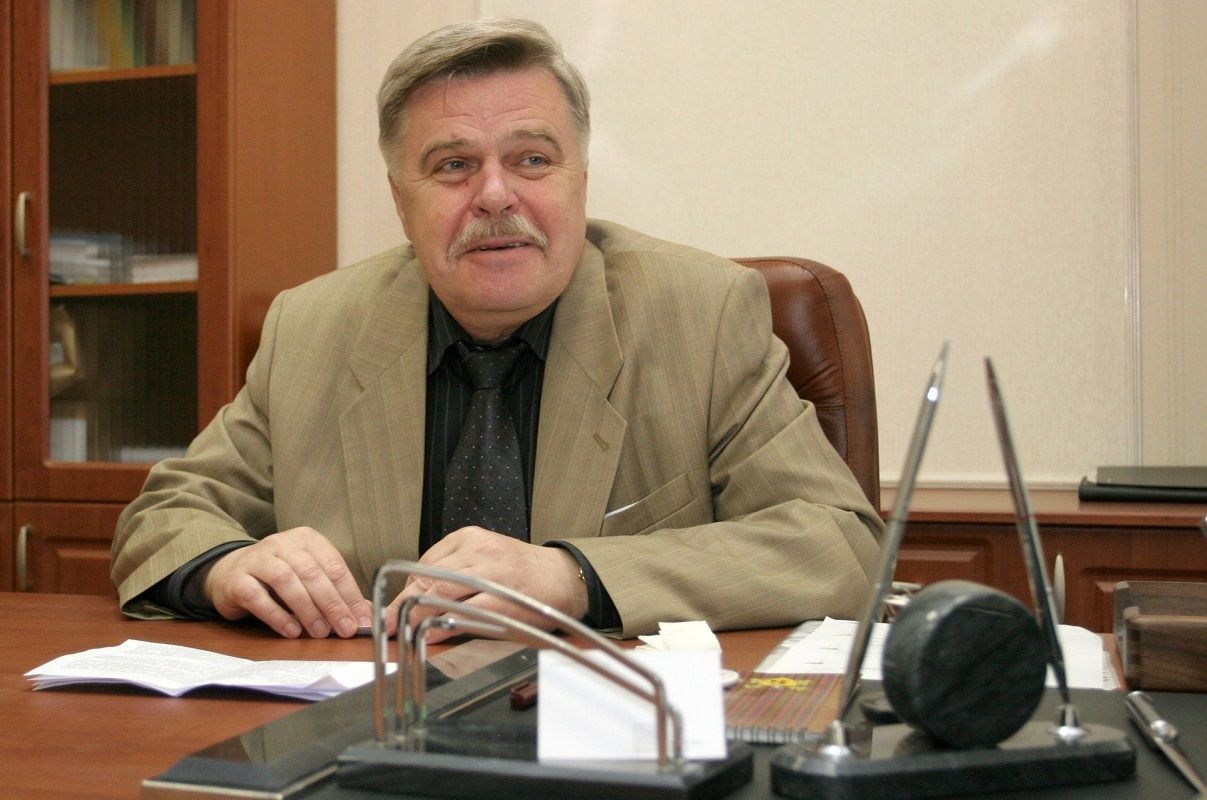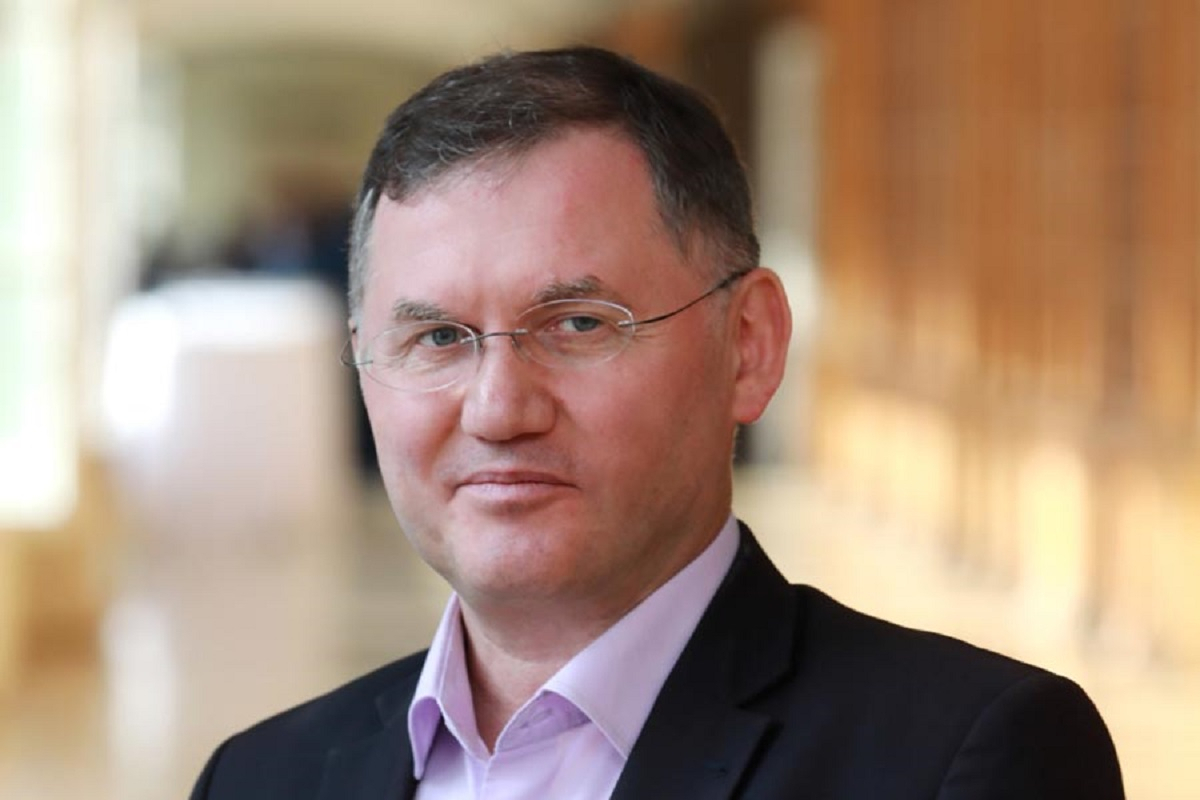Among the six Russian scientists included in the top most cited scientists in the world, there are three researchers from St Petersburg University
The Web of Science (WoS) Highly Cited Researchers 2020 in the world includes three researchers from St Petersburg University. This is the best result among Russian academic institutions.
This year, the WoS ranking has included six scientists who indicated Russian academic institutions as their primary affiliation. St Petersburg University, represented by three scientists, is first among Russian institutions.
The Web of Science is one of the most respected scientometric agencies in the world. It annually compiles the ranking based on the number of highly cited papers indexed in its database over the last decade (2009–2019). The list annually includes about 0.1% of the world's scientists – the most cited ones in their fields. Of the 6,167 researchers represented in this year’s ranking, the most cited scientists are from the United States (2,650 scientists, or 41.5% of the total). China is now home to the second largest concentration of Highly Cited Researchers (770 scientists, or 21.1%), overtaking the United Kingdom (514 scientists, or 8%).
Raul Gainetdinov is the Director of the Institute of Translational Biomedicine at St. Petersburg University and Academic Supervisor of the Pirogov Clinic of High Medical Technologies at St Petersburg University. He has been included in the WoS ranking for several years. 345 of the professor’s publications are presented in the Web of Science, 14 of which are marked as the most highly cited in the field of pharmacology and toxicology for 2009–2019. In this category, he is the only scientist from Russia. Prior to working at St Petersburg University, Raul Gainetdinov held the position of senior researcher at the Italian Institute of Technology. Also, he worked at Duke University in the USA.
I am very happy to be included in this respected list for the third year in a row. And I am especially proud that I represent our national colours and St Petersburg University. I have been working exclusively in Russia since 2016. The number of my highly cited publications is already growing thanks to the studies carried out at St Petersburg University. I hope that the number of highly cited scientists at the University will continue to grow. This will make it possible to confirm the leadership of our University in this indicator in Russia and promote its international reputation.
Raul Gainetdinov, Director of the Institute of Translational Biomedicine at St Petersburg University and Academic Supervisor of the Pirogov Clinic of High Medical Technologies at St Petersburg University
Raul Gainetdinov is one of the worldwide leaders in the pharmacology of the dopamine system. He is also the acting chairman of the nomenclature review committee on dopamine receptors at the International Union of Basic and Clinical Pharmacology (IUPHAR). Another direction in which Raul Gainetdinov has been recognised worldwide is the identification and study of a new neurotransmitter system associated with trace amines.
The studies by Professor Gainetdinov carried out at St Petersburg University have: shown the pharmacological significance of trace amine receptors; analysed the functions and molecular mechanisms of action of these receptors; and identified their role in the regulation of psychoemotional state and neurogenesis in an adult organism. It has also been shown that exposure to only one subtype of these receptors can lead to new drugs for diseases such as schizophrenia, depression, drug addiction, diabetes, and obesity. One of the latest studies by the research team headed by Raul Gainetdinov has shown that the recently discovered neurotransmitter system based on the TAAR5 trace amine receptors can regulate the number of dopamine neurons and adult neurogenesis, i.e. the formation of new cells in some brain structures in adults.
Raul Gainetdinov, Director of the Institute of Translational Biomedicine at St Petersburg University
Raul Gainetdinov heads the Institute of Translational Biomedicine at St Petersburg University, where a network of research groups has been established. It is constantly developing and studying various issues in the field of translational biomedicine. Among other things, the Institute carries out fundamental research into pathological processes of human diseases and is engaged in finding new methods of treatment and diagnosis of these diseases. The Institute also conducts educational activities. There are 11 laboratories at the Institute. They are headed by top scientists; one of the laboratories is supervised directly by Raul Gainetdinov. The main direction of research activities in the Laboratory of Neuroscience and Molecular Pharmacology at St Petersburg University under the supervision of Professor Gainetdinov is the development of new drugs for psychiatric and neurological diseases of the brain. These include schizophrenia, depression, and Parkinson's Disease.
Since 2019, under the supervision of Raul Gainetdinov, St Petersburg University has been working on the project ‘Development of innovative drugs based on trace amine associated receptors (TAAR)’, supported by a grant from the Russian Science Foundation (No 19-7530008). Within the framework of the project, the All-Russian Young Scientists’ School of the Institute of Translational Biomedicine has been held at the University for the second year in a row. Lectures at this school are delivered by top-level scientists from around the world. They tell students about innovative techniques used in biomedical and pharmacological research, such as optogenetics and non-clinical studies in animal models. At the school the scientists also explain how these studies can be further used in clinical practice for the treatment of human diseases. Particular attention is paid to studies of new potential therapeutic agents based on ligands for the trace amine receptors. Also, young researchers acquire modern principles of scientific communication: from stating an idea to a competent presentation of research findings or preparing them for publication in an academic journal.
It is not the first year that the WoS ranking includes Professor Nikolay Kuznetsov, Head of the Department of Applied Cybernetics at St Petersburg University, Doctor of Physics and Mathematics. The Web of Science database contains 189 works by Nikolay Kuznetsov, with 12 of them being highly cited in the field of interdisciplinary research.
Nikolay Kuznetsov continues and furthers the long-term activity of the research school created by Professor Gennady Leonov, who passed away in 2018. He was the dean of the Faculty of Mathematics and Mechanics at St Petersburg University, the founder of the Department of Applied Cybernetics, and Doctor of Physics and Mathematics.
‘The continued status of a highly cited scientist for several years reflects the relevance of the work carried out in our research school in recent years. The school is associated with the development of the theory of hidden oscillations and its applications to the development of mathematical control theory and nonlinear dynamics. The theory of hidden oscillations has turned out to be much-in-demand in many theoretical and topical engineering challenges, in which hidden attractors (their absence or presence and location) are of great concern. This theory, in particular, makes it possible to solve problems of the stability of control systems. In practice, the transition of the control system state to a hidden attractor, caused by external disturbances, leads to undesirable modes of operation and is often the cause of accidents and catastrophes. The interdisciplinary research conducted in our research school has turned out to be not only relevant for the science and technology development of the Russian Federation, but also sparked interest and widespread response of the international scientific community,’ emphasised Nikolay Kuznetsov.
For reference: this is not also the first year that Gennady Leonov’s publications have been included in the WoS ranking. The Web of Science database contains more than 170 of his works, 12 of which are highly cited. In 2018 and 2020, the research school headed by Nikolay Kuznetsov, successor of Gennady Leonov, received the status of the Leading
Scientific School (the Centre of Excellence) of the Russian Federation in the priority area ‘The transition to advanced digital, intelligent manufacturing technologies, robotic systems, new materials and methods of design, the creation systems for processing large amounts of data, machine learning, and artificial intelligence’. It also received support from the Council for Grants of the President of the Russian Federation.
‘In recent years, the studies of our research school have made a significant contribution to strengthening the position of St Petersburg University in the Shanghai Ranking of World Universities. The status of a highly cited scientist has the same weight in this ranking as the Fields Medal and the Nobel Prize, including in the corresponding subject rankings. So, since the Automation and Control subject area, which is closest to us, was included in
Shanghai Subject Ranking in 2017, St Petersburg University has been the top university in Russia and is included in the top 100 universities. It was 32nd in 2018 – the best result among Russian universities for all years in all areas of knowledge,’ said Nikolay Kuznetsov. All young students of the research school do an internship within the framework of the joint research and academic programme of St Petersburg University and the University of Jyväskylä (Finland). The fact that Nikolay Kuznetsov has been chosen as an external member of the Finnish Academy of Science and Letters is recognition not only of his academic achievements but also the success of the programme headed by him. Since 2018, the team's research has been supported by a respected Russian–Indian grant from the Russian Science Foundation (No 19-41-02002). The research topic is ‘Multistability and hidden oscillations in dynamical systems’. The project develops effective and reliable methods of analytical and numerical analysis of stability and hidden oscillations. These methods will make it possible to: advance in solving known fundamental problems; and analyse and synthesise applied models of automatic control, electronics and other models with given conditions for stability and the presence of oscillations.
This year, together with our foreign partners, we have prepared an application for establishing an international laboratory ‘Mathematical Control Theory and Nonlinear Dynamics’ at St Petersburg University within the framework of the megagrant programme. I hope that today's success will draw additional attention to our application. Its implementation will allow for the long-term development of the research school in order to consolidate the leading positions of St Petersburg University in this subject area.
Professor Nikolay Kuznetsov, Head of the Department of Applied Cybernetics at St Petersburg University, Doctor of Physics and Mathematics
The group of researchers who will work together with Nikolay Kuznetsov on the project includes two more highly cited world scientists: Professor Guanrong Chen, Honorary Doctor of St Petersburg University, the founder and head of the Centre for Chaos and Complex Networks at the City University of Hong Kong (China); and Sajad Jafari, PhD, Professor at Amirkabir University of Technology (Iran).




